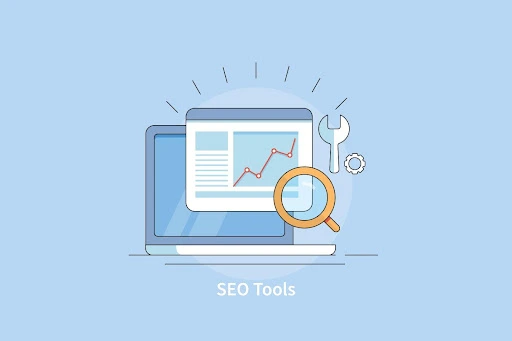From Research to Execution: How to Create a Holistic SEO Strategy Using Tools

Search engine optimization (SEO) is an essential aspect of any successful online marketing strategy. While SEO involves a range of techniques and tactics, developing a holistic SEO strategy is critical to achieving long-term success. In this article, we’ll explore how to create a comprehensive SEO strategy using SEO tools and data-driven insights.
Conduct Thorough Keyword Research
Keyword research is the foundation of any effective SEO strategy. By identifying the keywords and phrases that your target audience is searching for, you can create content that resonates with them and optimizes your website for those search terms. There are a variety of keyword research tools available, including Google Keyword Planner, SEMrush, Ahrefs, and Moz Keyword Explorer, among others. These SEO tools can help you identify high-volume keywords, assess competition, and uncover new opportunities for content creation.
Analyze Your Competitors
Analyzing your competitors is an important step in developing a successful SEO strategy. By understanding their strengths and weaknesses, you can identify areas where you can improve and differentiate yourself. SEO tools like SEMrush, Ahrefs, and Moz offer competitive analysis features that allow you to see your competitors’ backlink profiles, top-performing content, and keyword strategies.
Conduct a Technical SEO Audit
Technical SEO is an essential component of any SEO strategy, as it ensures that your website is optimized for search engine crawlers. Conducting a technical SEO audit can help you identify issues that may be hindering your website’s visibility on search engine results pages. There are a variety of SEO tools available for conducting technical SEO audits, including Google Search Console, Screaming Frog, and SEMrush.
Develop Content that Resonates with Your Target Audience
Creating content that resonates with your target audience is a critical aspect of SEO. By providing value to your audience and optimizing your content for relevant keywords and phrases, you can improve your website’s visibility on search engine results pages. SEO tools like BuzzSumo and Google Trends can help you identify popular topics and trending keywords, while Google Analytics can provide insights into user behavior and engagement with your content.
Build High-Quality Backlinks
Backlinks are a critical component of SEO, as they signal to search engines that your website is reputable and authoritative. Building high-quality backlinks from reputable websites can help improve your website’s search engine visibility and drive more traffic to your website. SEO tools like Ahrefs and Moz can help you identify link-building opportunities and track the quality and quantity of your backlinks.
Monitor and Analyze Your Performance
Monitoring and analyzing your SEO performance is critical to ensuring the long-term success of your strategy. SEO tools like Google Analytics and SEMrush provide valuable insights into website traffic, user behavior, and search engine visibility. By regularly monitoring your performance, you can identify opportunities for improvement and make data-driven decisions to optimize your strategy.
Creating a holistic strategy using SEO tools and data-driven insights is essential to achieving long-term success in online marketing. By conducting thorough keyword research, analyzing your competitors, conducting a technical SEO audit, creating valuable content, building high-quality backlinks, and monitoring your performance, you can develop a comprehensive SEO strategy that drives more traffic to your website and increases your visibility on search engine results pages.
FAQs
Ans: Some recommended tools for keyword research include Google Keyword Planner, which provides search volume and keyword suggestions. SEMrush offers comprehensive SEO features, including keyword analytics. Ahrefs provides keyword suggestions, search volume data, and difficulty scores. Moz Keyword Explorer offers search volume, organic click-through rates, and related keyword suggestions. Ubersuggest provides keyword suggestions, search volume data, and SEO difficulty scores. These tools can help you identify valuable keywords and optimize your content for better visibility and rankings.
Ans: Competitive analysis tools are essential for an effective SEO strategy. They allow you to analyze competitor websites, keywords, and backlinks. By understanding their strategies, you can identify opportunities, optimize your content, and build stronger backlinks. Track competitor rankings, analyze their top-performing pages, and learn from their successful tactics. This information enables you to stay ahead of the competition and improve your SEO performance.
Ans. Some tools mentioned in the blog for on-page optimization are Google Search Console, Moz On-Page Grader, and SEMrush. They provide insights, recommendations, and analysis to improve on-page elements and enhance SEO performance.
Ans: Some tools for tracking and measuring SEO performance include Google Analytics, Google Search Console, SEMrush, Moz Pro, and Ahrefs. These tools provide data and insights on website traffic, keyword rankings, backlinks, and other metrics to evaluate SEO effectiveness.
Ans: They help identify and analyze backlinks pointing to your site and competitors. By understanding link profiles, you can find quality backlink opportunities, assess competitor strategies, and improve your own link building efforts for better search engine visibility and rankings.

